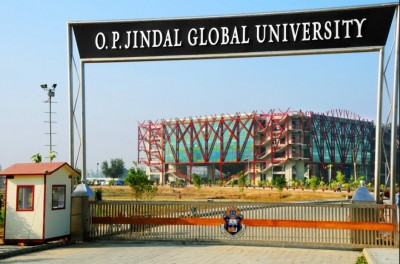
Sonipat, Every order of the judiciary is likely to have an economic impact, thus judges must be guided by economic principles when adjudicating matters, said experts at a two-day virtual event hosted by O P Jindal Global University (JGU) and CUTS International.
The two-day national virtual conference, being held from April 27-28, is on the theme 'Economic Dimensions in Judicial Decisions'.
"The Judiciary needs to evolve a robust set of principles on the basis of which, on its own, it can differentiate interventions in matters which are not relating to law but are policy questions," said Professor (Dr) C. Raj Kumar, Founding Vice Chancellor, O.P Jindal Global University, at the inaugural ceremony of the conference.
"There has been a growing discourse that judges should be guided by economic principles when adjudicating matters. Every order of the Judiciary is likely to have an economic impact, big or small. One way forward is to appoint expert committees to examine the issue in depth, analyse its enforceability and then action," added Pradeep Mehta, Secretary General, CUTS International.
The virtual event is expected to include over 45 thought leaders including judges, legal practitioners, experts from the government and regulatory bodies, representatives from the private sector, academicians and scholars, representatives from media and the civil society including consumer protection groups, environmental advocacy groups and trade unions.
"In the world of globalisation, competition and the doctrine of level playing field is an important one and now courts are increasingly receptive to economic arguments. The economic analysis of law has expanded into many areas from its original scope to include family law, intellectual property laws, health and safety, discrimination in employment and beyond," said Professor (Dr) A. Francis Julian, Senior Advocate, Supreme Court of India.


.jpeg)

